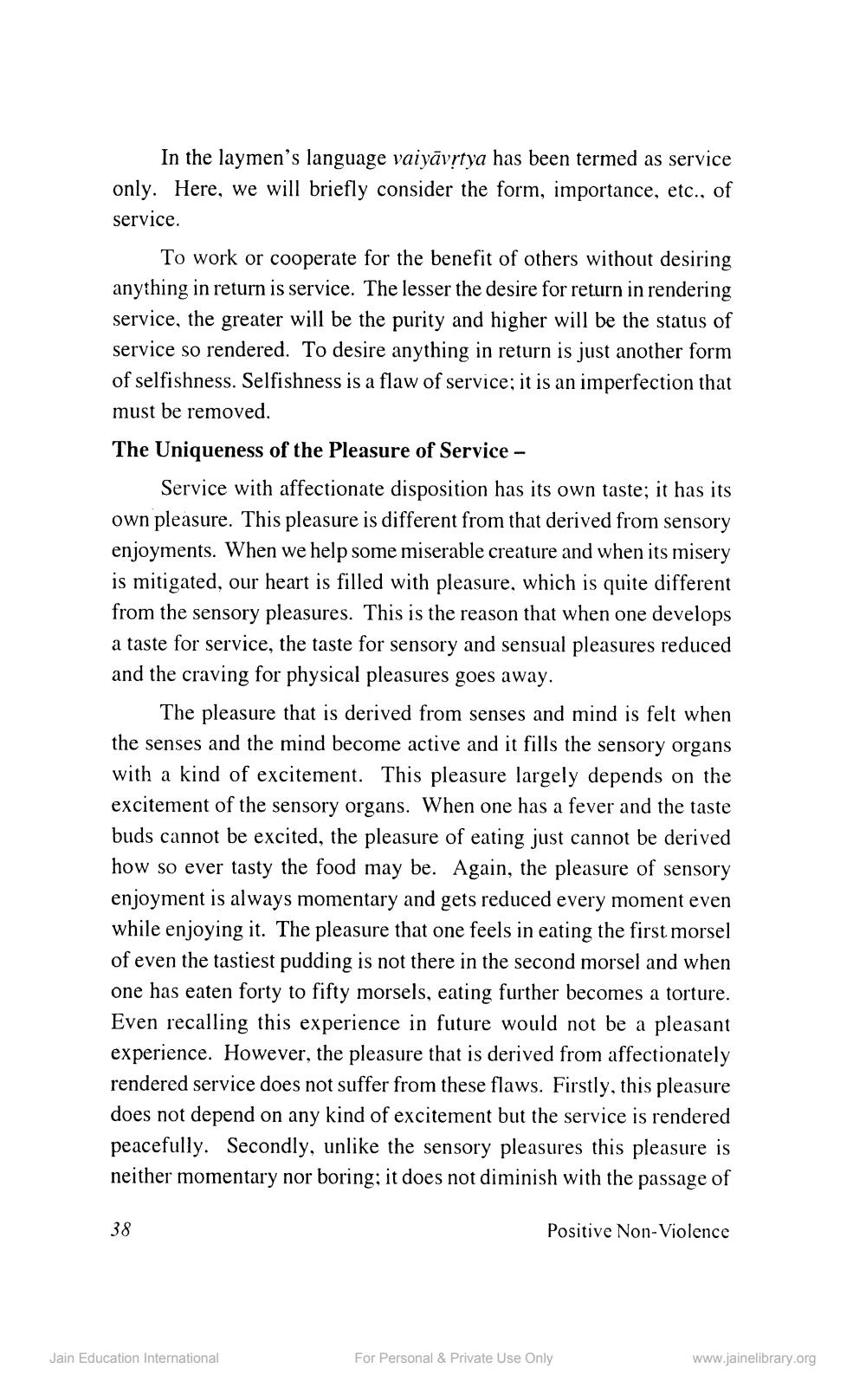________________
In the laymen's language vaiyāvrtya has been termed as service only. Here, we will briefly consider the form, importance, etc., of service.
To work or cooperate for the benefit of others without desiring anything in return is service. The lesser the desire for return in rendering service, the greater will be the purity and higher will be the status of service so rendered. To desire anything in return is just another form of selfishness. Selfishness is a flaw of service; it is an imperfection that must be removed. The Uniqueness of the Pleasure of Service -
Service with affectionate disposition has its own taste; it has its own pleasure. This pleasure is different from that derived from sensory enjoyments. When we help some miserable creature and when its misery is mitigated, our heart is filled with pleasure, which is quite different from the sensory pleasures. This is the reason that when one develops a taste for service, the taste for sensory and sensual pleasures reduced and the craving for physical pleasures goes away.
The pleasure that is derived from senses and mind is felt when the senses and the mind become active and it fills the sensory organs with a kind of excitement. This pleasure largely depends on the excitement of the sensory organs. When one has a fever and the taste buds cannot be excited, the pleasure of eating just cannot be derived how so ever tasty the food may be. Again, the pleasure of sensory enjoyment is always momentary and gets reduced every moment even while enjoying it. The pleasure that one feels in eating the first morsel of even the tastiest pudding is not there in the second morsel and when one has eaten forty to fifty morsels, eating further becomes a torture. Even recalling this experience in future would not be a pleasant experience. However, the pleasure that is derived from affectionately rendered service does not suffer from these flaws. Firstly, this pleasure does not depend on any kind of excitement but the service is rendered peacefully. Secondly, unlike the sensory pleasures this pleasure is neither momentary nor boring; it does not diminish with the passage of
38
Positive Non-Violence
Jain Education International
For Personal & Private Use Only
www.jainelibrary.org




